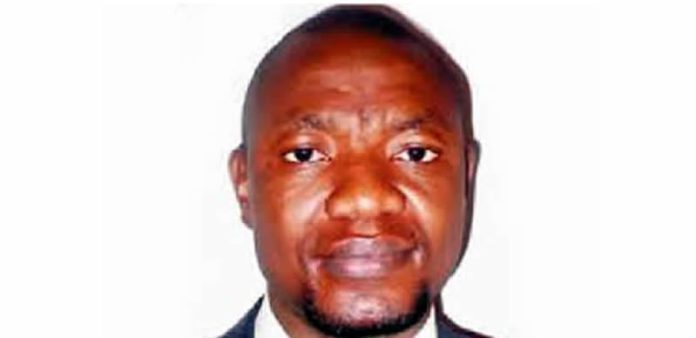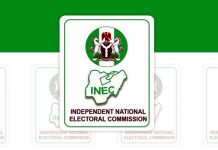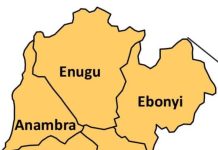

The removal of the petrol subsidy on May 29, 2023, has affected everybody and everything in Nigeria. But the most impacted of them all is domestic cooking. As the price of Liquefied Petroleum Gas, aka cooking gas, rises almost on a daily basis, people are now desperately looking for alternatives, and no one is talking about whether these substitutes are dirty or clean. People just want to cook, not minding the danger. To bring this point home, there was a social media meme which trended recently, “1 kg of (cooking) gas is now N1,600. Abeg, if I pass you for the road with a cutlass, no run o. Na firewood I dey find!”
It may sound funny, but it is the reality of our time. Indeed, it poignantly summarizes what is happening at the domestic level. The desperation is real. But, there are wider and more dangerous implications. As people struggle to cut firewood and cook, they are inviting diseases and death to their homes, because this is a dirty fuel. Women and children are most affected, as they are the primary actors in this constituency. To make it even much clearer, just last month, more than 100 women were kidnapped by bandits in Borno State while they went in search of firewood for cooking.
Yet, the other side is not as visible, though deadlier. Traditional open-fire cooking with firewood and other polluting fuels such as kerosene and charcoal are claiming lives. In fact, they are silent killers, destroying the environment and putting a burden on women, as smoke generated by firewood exposes women to diseases such as tuberculosis, asthma, high blood pressure and lung cancer. Recently a Nigerian-based public health physician, Dr Rahmat Odesesan, revealed that indoor use of stoves and firewood can expose children, especially those under the age of five to the risk of lung infection and respiratory diseases.
Statistics show that it causes over 78,000 deaths annually in Nigeria. It also contributes to the loss of nearly 400,000 hectares of forests annually, while emissions from residential cooking represent about 55 million metric tonnes of carbon dioxide and about 700,000 metric tonnes of harmful particulate matter emissions. This constitutes a significant proportion of Nigeria’s total greenhouse gas emissions (which cause global warming and climate change), and its abatement represents a key national strategy in meeting the commitment to the Paris Climate Change Agreement.
Therefore, the removal of subsidy has obviously reversed the gains we made in the fight against climate change. The statistics is scary. It was estimated that approximately 127 million people and more than 24 million families cook inefficiently with open fires in Nigeria. Only one in 10 households cooks with clean energy sources and technologies such as electricity or improved biomass stoves. So, now that there is a ‘mad rush’ for firewood, charcoal and similar resources, what would the data show?
Again, firewood is a cultural pride for some Nigerian tribes like the Gbagyi. But now they are gradually discarding the age-old tradition of collecting and adorning firewood as treasures, and the cost of LPG skyrockets out of reach of the poor, they are forced back to their old ways.
Secondly, the Federal Government has already invested heavily in clean cooking, in order to avert the simmering household energy crisis. It pledged to provide access to cooking gas for 28.8 million households and improved biomass cookstoves for 7.3 million, representing 48 per cent and 13 per cent of the total population, respectively, by 2030. This was estimated to save over 30,000 lives per annum, build a domestic clean cooking industry and create new jobs, reduce deforestation, assist the government in meeting its climate change commitments, meet its pledge to reduce short-lived climate pollutants and improve the lives of women. In its updated Nationally Determined Contribution, Nigeria made a firm commitment to expand access to clean cooking.
To achieve this clean cooking target, the Federal Government of Nigeria through the Federal Ministry of Environment and other key stakeholders developed a Draft National Clean Cooking Policy, which was validated in December 2022. The draft policy was informed by credible evidence obtained through economic and social research, including the modelling of future scenarios for expanding access and its impacts on health and the environment. With all these milestones, one is wont to wonder how the emerging indications would create a societal flux.
Therefore, it was in a bid to incorporate the scope for integrating the latest evidence into stakeholder discussions around the draft policy, and for strengthening engagement between scientific policy and societal actors on the issue of clean cooking, that some stakeholders came together this week in a “high-level dialogue on deploying state-of-the-art evidence for household energy policy making in Nigeria’.
Key questions were explored during the dialogue, hosted by the International Centre for Energy, Environment and Development in partnership with researchers from the University of Nottingham, United Kingdom and the University of Ibadan. What is the latest evidence on the state of household energy access in Nigeria? How can clean-cooking research capacity be strengthened to ensure the availability of consistent and credible evidence base for policymaking in the sector? What inputs – technical, financial and institutional – are required to strengthen the linkages between clean-cooking research, policy and society? How can we link policy processes and outputs to outcomes on the ground, especially given the current economic headwinds in the country that threaten to reverse the progress that has been made toward LPG in the last decade?
One of the key takeaways from the dialogue is the idea that the government should see clean cooking as a public good and engage accordingly. Mr Ewa Eleri, the Executive Director of ICEED, expatiated: “If we are serious about the issue, I think we need to bring a public perspective to it, because we want to reduce sickness, we want to reduce deaths. We want to solve national problems the way we deal with malaria, HIV/AIDS and other issues. It becomes a public good. On that, we can justify being able to spend huge resources either government or private sector through the carbon market like other nations are doing. We need to listen to reality. People here are very poor. It is not for nothing that we are called the poverty capital of the world. There are very poor people here, especially in the northern part.”
I am of the same view. Additionally, the National Assembly should include them in the so-called constituency projects; and the government include them in green jobs grants to youth entrepreneurs. Apart from some other institutional upgrades that the government should do as a matter of urgency, like the installation of a clean cookstove testing laboratory at the Standards Organisation of Nigeria; it should work towards incentives that would encourage both energy providers and users. More so, even as the country has yet to get it right in the electricity sector and power supply, we should start now to deliberately put in the building blocks for the future adoption of what is known as modern energy cooking services.
The subsidy removal and its attendant national quandary may have thrown us back to the dark ages but we must not accept to remain on the floor grovelling. We just have to innovate to survive. Nigeria remains a regional giant and the work our citizens and professionals have been doing in the sector has blazed the trail for other African countries. We must keep our focus in order to perform better in the Sustainable Development Goals (2015 – 2030) than we did in the Millennium Development Goals (2000 – 2015). In pushing for the adoption of clean cookstoves, we are addressing energy access (SDG 7); fighting climate change (SDG 13); and promoting gender equality (SDG 5).
Join Television Nigerian Whatsapp Now
Join Television Nigerian Facebook Now
Join Television Nigerian Twitter Now
Join Television Nigerian YouTUbe Now





